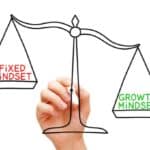Feedback is an essential aspect of personal and professional growth. It provides valuable insights and perspectives that can help us improve and navigate through life’s challenges. While receiving feedback can sometimes be uncomfortable, it is crucial to approach it with an open mind and view it as a gift, regardless of whether we agree with it or not. In this blog post, we will explore why feedback is valuable and how embracing it can lead to personal and professional development.
Table of Contents
The Gift of Different Perspectives:
Feedback offers us an opportunity to see ourselves from a different perspective. It allows us to gain insights that we may have overlooked, identify blind spots, and discover new ways of thinking. Even when we disagree with the feedback we receive, it challenges our existing beliefs and perspectives, encouraging us to question our assumptions and explore different possibilities.
Enhancing Self-Awareness:
Feedback is a powerful tool for self-awareness. It provides an external perspective that can shed light on our strengths, weaknesses, and areas for improvement. By actively seeking feedback, we can gain a deeper understanding of ourselves and our impact on others. This self-awareness allows us to make necessary adjustments, grow as individuals, and build stronger relationships.
Encouraging Growth and Learning:
Feedback, even when it highlights areas of improvement, is a catalyst for growth and learning. It helps us identify areas where we can enhance our skills, knowledge, and performance. Embracing feedback with an open mind allows us to turn constructive criticism into opportunities for development. By actively seeking feedback, we become intentional learners, constantly seeking ways to improve and reach our full potential.
Building Trust and Relationships:
An essential aspect of healthy relationships, both personally and professionally, is the ability to give and receive feedback. When we see feedback as a gift, it creates an environment of trust and open communication. By valuing the perspectives and insights of others, we foster collaboration and create a space for mutual growth. Embracing feedback and having constructive conversations can strengthen our relationships and lead to better teamwork and outcomes.
Resilience and Adaptability:
Feedback can be challenging, especially when it challenges our beliefs or shows us areas where we need to improve. However, by embracing feedback, even when it is difficult to hear, we develop resilience and adaptability. We learn to accept constructive criticism without taking it personally and become more open to change and continuous improvement. This resilience not only helps us navigate through setbacks but also enables us to thrive in an ever-changing world.
Exploring Feedback: Definitions, Meanings, and Applications Across Various Contexts
Conclusion:
Feedback is truly a gift that can shape our personal and professional growth. By opening our minds and embracing feedback, even when we disagree, we open ourselves up to new perspectives, self-awareness, and opportunities for growth. Remember, feedback is not a personal attack but an opportunity for improvement. So, let us appreciate and value the gift of feedback, for it is through this gift that we can unlock our full potential and continue on the path of continuous learning and growth.


























